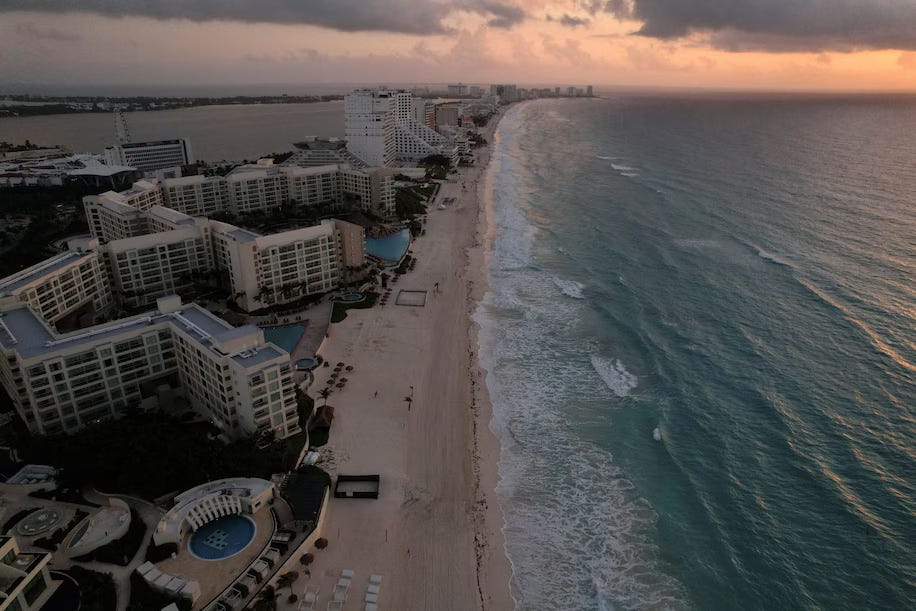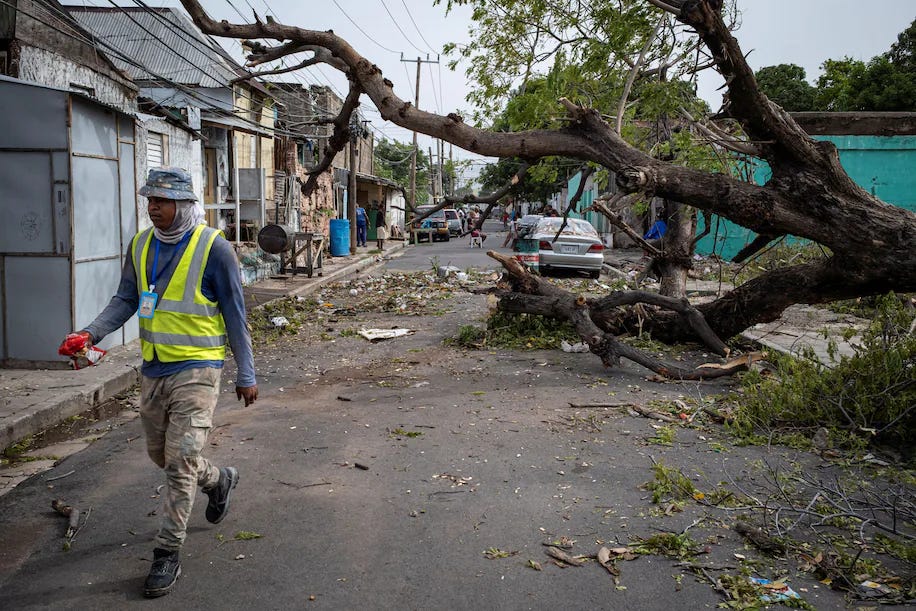
Devastation Hits the Yucatán Peninsula in Mexico
Landfall and Immediate Impact
Hurricane Beryl, a powerful Category 4 storm, made landfall on Mexico’s Yucatán Peninsula early Friday, bringing with it devastating winds and torrential rains. The storm, with maximum sustained winds of 115 mph, caused extensive flooding and a storm surge of up to 5 feet. Coastal communities from Puerto Costa Maya to Cancún, including Cozumel, are bearing the brunt of Beryl's fury, with widespread damage to infrastructure and homes.
Projected Path and Future Threats
As Beryl moves west-northwest over the Bay of Campeche, it is expected to re-intensify over the Gulf of Mexico. Northeastern Mexico and South Texas are bracing for potential impacts by Sunday into Monday. The exact trajectory remains uncertain, but there is a significant risk for South Texas if the storm curves northward, potentially bringing hurricane-force winds, heavy rains, and storm surges
The Storm’s Rampage Through Jamaica
Initial Assault
Before hitting Mexico, Hurricane Beryl wreaked havoc in Jamaica on Wednesday. The storm skirted the island's southern coast, causing catastrophic flooding, wind damage, and ocean surges. In Kingston, wind gusts reached 81 mph, leading to severe damage, including at Norman Manley International Airport. Government offices and public services were temporarily shut down, and around 65 percent of households lost power.
Human and Structural Toll
The storm claimed at least two lives in Jamaica, with one individual swept out to sea. The eastern part of the island experienced the most severe flooding, prompting many residents to evacuate. Prime Minister Andrew Holness reported significant damage, especially in St. Elizabeth parish, where numerous homes were destroyed, trees uprooted, and roads rendered impassable.
Historical Context and Broader Implications
Record-Breaking Storm
Beryl stands out as the earliest-forming Category 5 hurricane on record in the Atlantic, breaking previous benchmarks for its strength and rate of intensification. This early and intense storm marks the beginning of what forecasters predict will be a particularly active hurricane season, driven by unusually warm ocean waters.
Widespread Destruction in the Caribbean
Before reaching Jamaica, Beryl caused severe damage in Grenada, St. Vincent, and other Caribbean islands. Particularly hard-hit were the Grenadian islands of Carriacou and Petite Martinique, where homes and businesses were obliterated, leaving many residents in desperate need of aid.
Preparing for the Worst
Implications for South Texas and Beyond
As Beryl continues its path, the possibility of a direct hit on South Texas remains a serious concern. Residents are advised to prepare for potential flooding, high winds, and storm surges. The ongoing threat underscores the urgent need for preparedness and resilience in the face of increasingly severe weather events.
Hurricane Beryl has already demonstrated its destructive power across multiple regions, from the Caribbean to Mexico. As communities brace for further impacts, the storm serves as a stark reminder of the growing intensity of natural disasters in our changing climate.
Meteorological Causes and Climate Change Implications
Early Season Intensification
Hurricane Beryl’s unprecedented early formation and rapid intensification can be attributed to unusually warm ocean waters and favourable atmospheric conditions. Typically, the peak of the Atlantic hurricane season occurs in September. However, the record-warm sea surface temperatures provided ample energy for the storm’s early development, underscoring the changing dynamics of our climate system.
Climate Change Warning
Beryl's early and extreme impact should serve as a wake-up call to even the most sceptical observers. The increasing frequency and severity of such storms are clear indicators of the disastrous impacts of climate change. This phenomenon is not just a distant future threat but a present reality, demanding immediate action to mitigate further environmental damage. The time to act is now, to safeguard our communities and ensure a sustainable future for generations to come.
If you believe this article would interest someone you know, please feel free to share it anonymously (for us), using any platform that you prefer.







Love your articles on multiple topics. It needs time, dedication and grit. Not possible without it.🙏🙏🙏